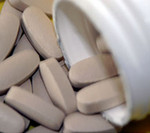The study links certain types of autism to a genetic mutation that speeds up the metabolism of certain amino acids.

Led by Professor Joseph Gleeson from the University of California, San Diego, USA, the international team of researchers then revealed that mice with the same genetic mutation had eased neurobehavioural symptoms and reduced levels of associated epilepsy when fed a supplement containing added amino acids.
"It was very surprising to find mutations in a potentially treatable metabolic pathway specific for autism," said Gleeson. "What was most exciting was that the potential treatment is obvious and simple: Just give affected patients the naturally occurring amino acids their bodies lack."
Study details
Gleeson and his colleagues used the emerging technology of exome sequencing to study two closely related families that have children with autism spectrum disorder.
The children also had a history of seizures or abnormal electrical brain wave activity, as well as a mutation in the gene that regulates how amino acids are metabolised. In exome sequencing, researchers analyze all of the elements in the genome involved in making proteins.
In addition, the team examined cultured neural stem cells from the participants – finding that they behaved normally in the presence of branched chain amino acids (BCAAs). Such BCAAs are not produced naturally in the human body and must be acquired through diet, they noted.
This finding suggested the condition might be reversible via nutritional supplementation, said Gleeson.
Mouse study
After this the team studied a line of mice engineered with the same genetic mutation. The results of this study showed the condition was both inducible by lowering the dietary intake of the BCAAs and reversible by raising the dietary intake, said the authors.
Mice treated with BCAA supplementation displayed improved neurobehavioral symptoms, reinforcing the idea that the approach could work in humans as well.
"Studying the animals was key to our discovery," said Dr Gaia Novarino – the first author of the paper. "We found that the mice displayed a condition very similar to our patients, and also had spontaneous epileptic seizures, just like our patients. Once we found that we could treat the condition in mice, the pressing question was whether we could effectively treat our patients."
"We think this work will establish a basis for future screening of all patients with autism and/or epilepsy for this or related genetic mutations, which could be an early predictor of the disease," he said.
"What we don't know is how many patients with autism and/or epilepsy have mutations in this gene and could benefit from treatment, but we think it is an extremely rare condition."





